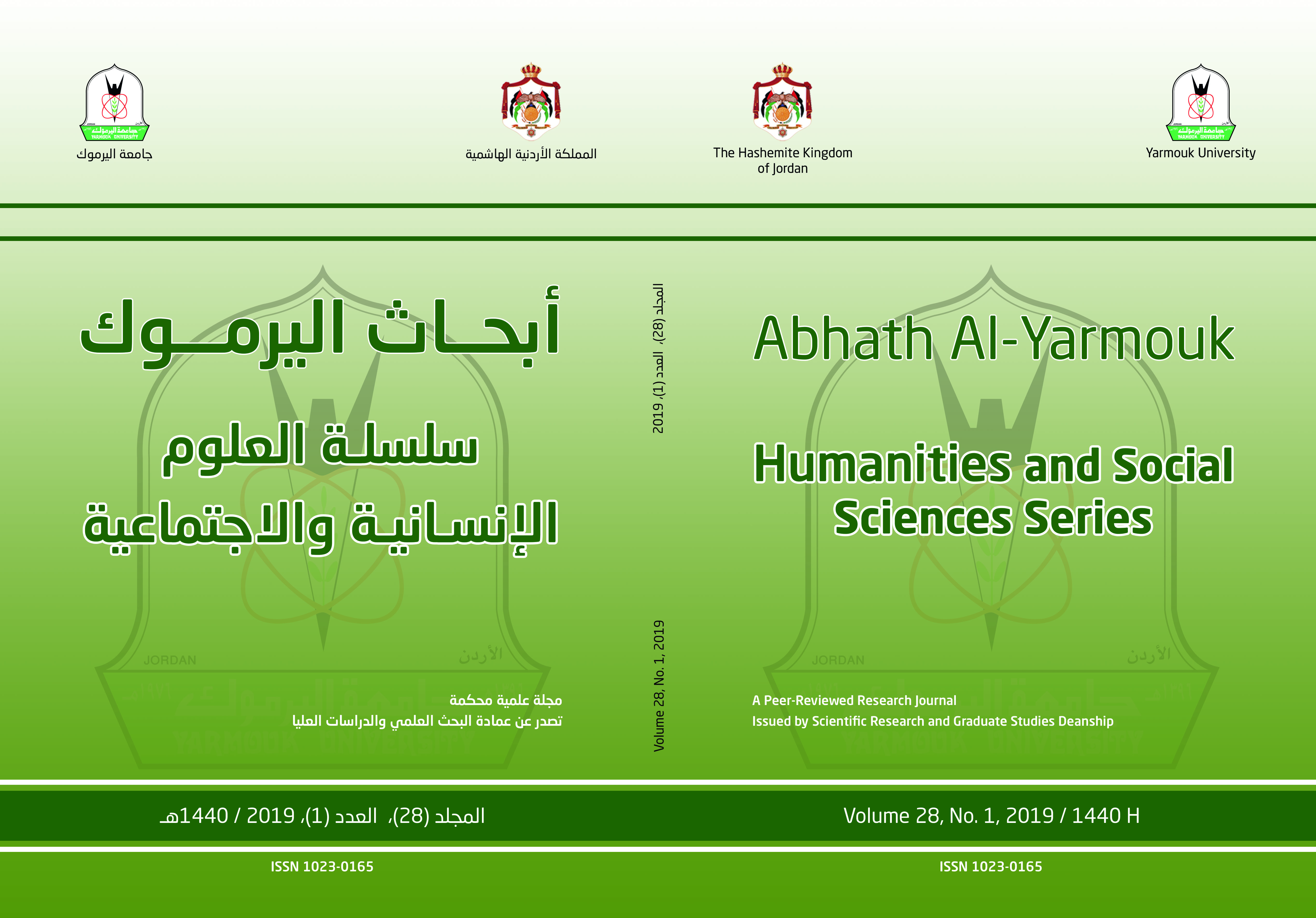Lamenting the Soul in the Poetry of Al-Mutanabbi
Keywords:
Elegy, parting, Abbasid poetry, alienation, illness, Al-MutanabiAbstract
This research aimed at studying the self-pity of Al- Mutanabi and analyzing the models which have a clear influence on the poetic structure through the poet's philosophy towards death, the suffering of illness and farewell to lovers. The researcher employed the analytical method to try to identify the characteristics of Al-Mutanabi's self-pity in his poetry.
This research revealed that the poet was distinguished in his philosophy towards death and its inevitability and his carelessness about it. Consequently, he made himself and his soul a sacrifice for the beloved willingly. Although he suffered a lot, he was good at acting the role of a victim skillfully and with ability through mourning himself and regretting the past. His lamentation of himself was different from the lamentation of the other poets because he tended to lament the tormenting of the soul more than the real death of the soul. Also, we find that the poet's intention was not pure self-pity in anticipation of the actual death of the soul but as a means of complaint about his real suffering of injustice and abandonment of his beloved. This is what he was afflicted with in the first place. Hence, he did not mourn himself except in an indirect way that fits talking about the beloved who made him taste the horrors of abandonment. So, he portrayed the death that resulted from the abandonment as most of the poets have done. This makes them feel lost as a result of being abandoned. Hence, the anguish of sadness turns into anger at the suffering of the soul and enormity of the grief to create lamentation before the actual death of the body.

